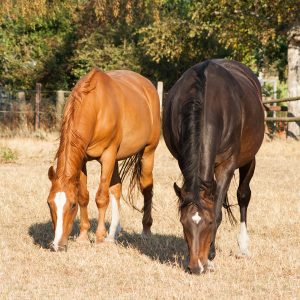
Nutritional Considerations for Horses in Drought Conditions
Careful management of your horse year-round will help ensure that he remains healthy during drought conditions. In the short-term future,...
» View Article
Careful management of your horse year-round will help ensure that he remains healthy during drought conditions. In the short-term future,...
» View Article
Feeding directions are an important place to start. As human beings, we have the ability to manage our own daily...
» View Article
Dietary energy dictates body condition in healthy horses. Too little energy and the horse loses weight; too much energy and...
» View Article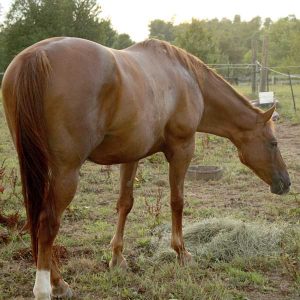
In Clarifying Carbohydrates Part I, we reviewed simple carbohydrates and in Clarifying Carbohydtrates Part II we looked at rapidly fermentable carbohydrates. This Nutritional Minute describes slowly fermentable carbohydrates (fiber) and discusses the concerns associated with all carbohydrates in the equine diet.
» View Article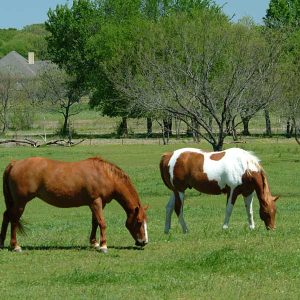
There are many types of carbohydrates in equine diets, including simple carbohydrates, rapidly fermentable carbohydrates, and complex, slowly fermentable carbohydrates. Your horse digests each type of carbohydrate differently. Some types of carbs are better for your horse than others. Click here for Clarifying Carbohydrates Part I for information on simple carbs. This time we will reviewing rapidly fermentable carbs.
» View Article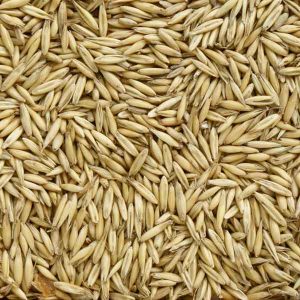
There are three different types of carbohydrates utilized by horses: simple sugars and starches, rapidly fermentable carbohydrates, and structural carbohydrates. This part of our series will deal with simple sugars and starches.
» View Article
Why choose Equi-Jewel? Equi-Jewel® was developed by Kentucky Performance Products, LLC to safely meet the energy needs of today’s horses....
» View Article
As pastures fade from green to brown, horse owners all over will soon be feeding hay to meet their horses’...
» View Article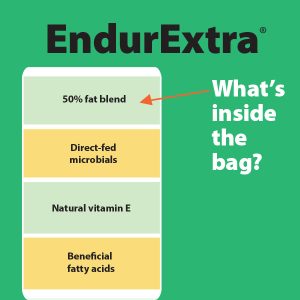
Click here to download a print version of this infographic. Text-only version of “EndurExtra®: What’s Inside the Bag” A blend...
» View Article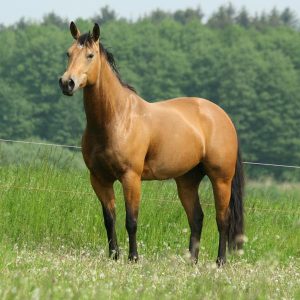
Packed with energy Fat is an effective energy source for horses. Pound for pound, fats provide 2.25 times more energy...
» View Article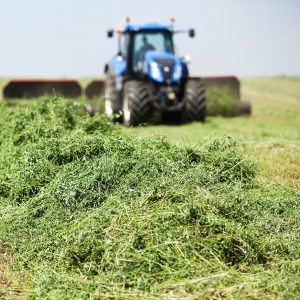
The reason alfalfa gets a bad rap for making horses “hot” is because alfalfa is higher in digestible energy and...
» View Article
Myths MYTH: Protein is a good source of energy for mature horses. BUSTED: Of the three dietary energy sources—carbohydrates, fats...
» View Article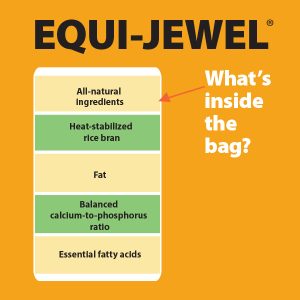
Equi-Jewel contains all-natural ingredients that provide the calories your horse needs to thrive. Equi-Jewel’s high-fat formula reduces the risk of digestive upset, supports optimal muscle function, and sustains a calm, cool attitude.
» View Article
Simply put, horses need energy. Energy is traditionally supplied by cereal grains such as oats, corn, and barley. These feedstuffs...
» View Article
Love takes many forms Approaching the barn you slide the heavy, hanging door back and the deep rumble sets off...
» View Article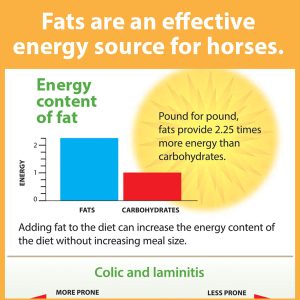
Pound for pound, fats provide 2.25 times more energy than carbohydrates. Adding fat to the diet can increase the energy content of the diet without increasing meal size.
» View Article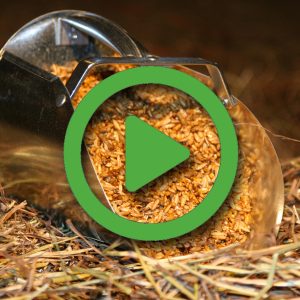
Researchers have confirmed that as horses age, they naturally become less sensitive to insulin and more susceptible to health problems...
» View Video
Hey everyone. So as a lot of know, young horses can be hard to put and keep weight on, especially our beloved off-the-track Thoroughbreds. They all seem to go through a strange awkward gangly stage, usually at ages 2 and 3. No horse knows this…
» View Article
What does the guaranteed analysis really tell you? If you have looked at a feed tag you have seen a guaranteed analysis (GA) of nutrients. It is full of minimums and maximums, crude this and that, and lots of numbers. But what does the GA really tell you about the feed you are considering for your horse? A lot!
» View Article
MYTH: Fat is an unsuitable ingredient in the diets of endurance horses. FACT: Fat is not only a perfectly acceptable...
» View Article
"*" indicates required fields